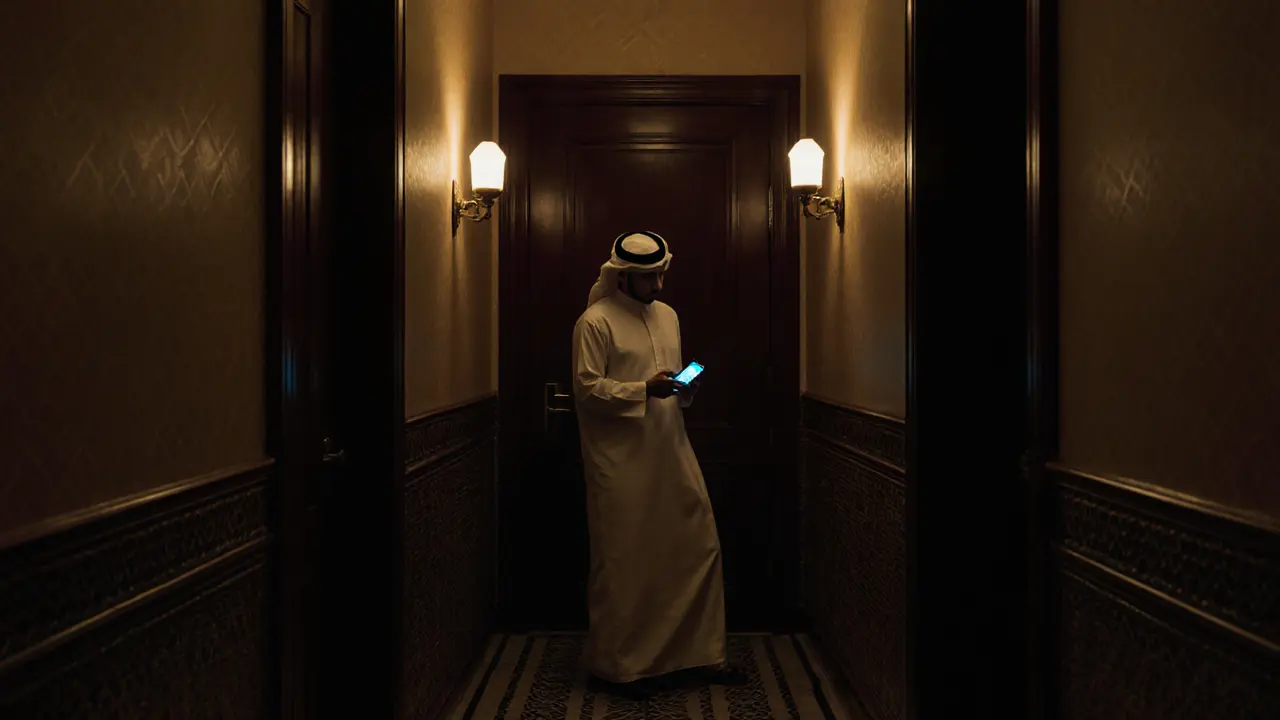Abu Dhabi’s escort industry exists in a space few talk about openly, and even fewer understand. If you’re asking about it, you’re probably trying to figure out what’s real, what’s legal, and what’s just rumor. Let’s cut through the noise.
The Legal Reality
Prostitution is illegal in the United Arab Emirates. That includes paying for sex, arranging it, or even advertising escort services. The UAE enforces strict moral laws based on Islamic principles, and violations can lead to jail time, deportation, or heavy fines-even for foreigners. There’s no gray area here: if you’re looking for sexual services in exchange for money, you’re breaking the law.
That doesn’t mean people don’t offer companionship. Many individuals advertise as “tour guides,” “social companions,” or “event partners.” These roles are often used as a cover. The line between companionship and paid sex is thin, and the authorities don’t care about the label. If money changes hands for sexual activity, it’s still illegal.
How It Actually Works
Most escort services in Abu Dhabi operate privately. You won’t find storefronts, websites with photos, or public listings. Instead, referrals come through word of mouth, private messaging apps like WhatsApp or Telegram, or discreet social media accounts with coded language. Some expat communities have informal networks where people share contacts-but these are rarely safe or reliable.
Many of the individuals offering these services are foreign nationals on tourist or work visas. They’re often under pressure to earn money quickly, and the risk of arrest or deportation makes them vulnerable. Clients who don’t understand the legal landscape can end up unknowingly involved in exploitation or human trafficking networks.
There’s no industry standard. No background checks. No safety protocols. No way to verify who you’re meeting. One client told me he arranged a meeting through a Telegram group, paid $500 in advance, and never heard from the person again. Another was arrested after a police raid on a private apartment. Both cases were real-and both happened in the last year.
Why People Get Involved
It’s easy to assume this is about luxury or pleasure, but the truth is more complicated. For many women-and some men-offering companionship in Abu Dhabi is a survival strategy. They’re often stuck in the UAE with limited job options, language barriers, or debts from recruitment agencies. Some came on tourist visas hoping to find work, then found themselves trapped in situations they couldn’t escape.
For clients, the appeal is often loneliness, isolation, or curiosity. Expats working long hours in corporate roles, diplomats far from home, or tourists seeking novelty may feel drawn to the idea of companionship without emotional commitment. But the emotional cost is rarely discussed. Many clients later describe feeling used, guilty, or anxious after the encounter-not because of the act itself, but because of the secrecy, the risk, and the lack of real connection.

The Hidden Dangers
The biggest danger isn’t just the law-it’s the lack of protection. No one is watching out for you. If something goes wrong, you can’t call the police without risking your own arrest. If you’re scammed, there’s no consumer protection agency to turn to. If you’re assaulted, reporting it could lead to deportation.
Scams are common. People pay upfront for services that never happen. Others are recorded and blackmailed. There have been cases where clients were filmed during encounters and later threatened with exposure to their employers or families. In one case, a British businessman was forced to pay $10,000 after being threatened with video evidence sent to his company. He didn’t report it because he knew he’d be arrested too.
Even meeting someone in a hotel room can be risky. Hotels in Abu Dhabi are required to report suspicious activity, and staff often monitor guest behavior. If you’re seen bringing someone in who doesn’t match your passport details, you could be flagged.
What Happens If You Get Caught?
If you’re caught engaging in or arranging paid companionship, you’ll likely be detained by police. Your passport will be confiscated. You’ll be questioned, possibly held for days, and then handed over to immigration. For non-citizens, deportation is almost guaranteed. A criminal record in the UAE can block future visas-not just to the UAE, but to other Gulf countries and even some Western nations that share immigration data.
Fines can range from 10,000 to 50,000 AED (about $2,700 to $13,600 USD). Jail time is possible, especially if there’s evidence of trafficking, minors, or repeat offenses. First-time offenders sometimes get a warning and deportation-but that’s not guaranteed. The system doesn’t care about your intentions. It only cares about the violation.

Alternatives That Actually Work
If you’re in Abu Dhabi and feeling isolated, there are better ways to connect. The city has a large expat community. Meetup groups for language exchange, hiking, board games, and even book clubs are active and growing. Apps like Bumble BFF and Meetup.com have thousands of local users looking for non-romantic connections.
Many hotels and cultural centers host social events-art openings, film nights, cooking classes. These are safe, legal, and often free. The Abu Dhabi Tourism Authority runs monthly cultural tours that bring expats and locals together. You’ll meet people who are curious, kind, and looking for the same thing you are: real connection.
Therapy and counseling services are also available. Expats can access English-speaking psychologists through clinics like The American Hospital or The Canadian Medical Center. Talking to someone trained to help isn’t a sign of weakness-it’s a smart way to handle loneliness in a foreign country.
The Bigger Picture
Abu Dhabi isn’t just a city of luxury towers and desert resorts. It’s a place where cultures collide, expectations clash, and people struggle to find belonging. The escort industry thrives in the shadows because people are lonely, desperate, or misinformed. But it doesn’t solve anything. It only creates more risk, more pain, and more broken trust.
What you’re really looking for-companionship, understanding, human connection-is out there. But it won’t come through a hidden message or a paid arrangement. It’ll come through showing up, being honest, and giving yourself time.
Final Thoughts
There’s no secret shortcut to connection in Abu Dhabi. The so-called “secrets” of the escort industry are just warnings in disguise. The real truth? You don’t need to break the law to feel less alone. You just need to know where to look-and the courage to take the first step.
Is it legal to hire an escort in Abu Dhabi?
No, it is not legal. Prostitution and paid sexual services are strictly prohibited under UAE law. Even if someone calls themselves a “companion” or “tour guide,” exchanging money for sex is still a criminal offense. Penalties include fines, detention, and deportation.
Can I get arrested for using an escort service?
Yes. Both clients and service providers can be arrested. Police regularly conduct raids on private residences and hotels where such activities are suspected. Even if you didn’t engage in sex, paying for companionship with sexual intent is enough to trigger legal action. Your passport may be seized, and you could face deportation.
Are there safe escort services in Abu Dhabi?
There are no legally safe escort services. Any service claiming to be “discreet,” “verified,” or “legal” is misleading. Without regulation, there’s no way to verify identities, safety standards, or intentions. Many services are fronts for scams or human trafficking. The safest choice is to avoid them entirely.
Why do people in Abu Dhabi offer escort services?
Many are foreign nationals facing financial hardship, visa restrictions, or language barriers. Some were recruited with false promises of legitimate work. Others are trapped by debt or fear of returning home. The industry preys on vulnerability. It’s not about choice-it’s about survival in a system that offers few alternatives.
What should I do if I’m feeling lonely in Abu Dhabi?
Join local expat groups through Meetup or Bumble BFF. Attend cultural events hosted by the Department of Culture and Tourism. Take a cooking class, join a running club, or volunteer. The city has active communities focused on real connection-not paid encounters. Counseling services are also available for those struggling with isolation or mental health.

